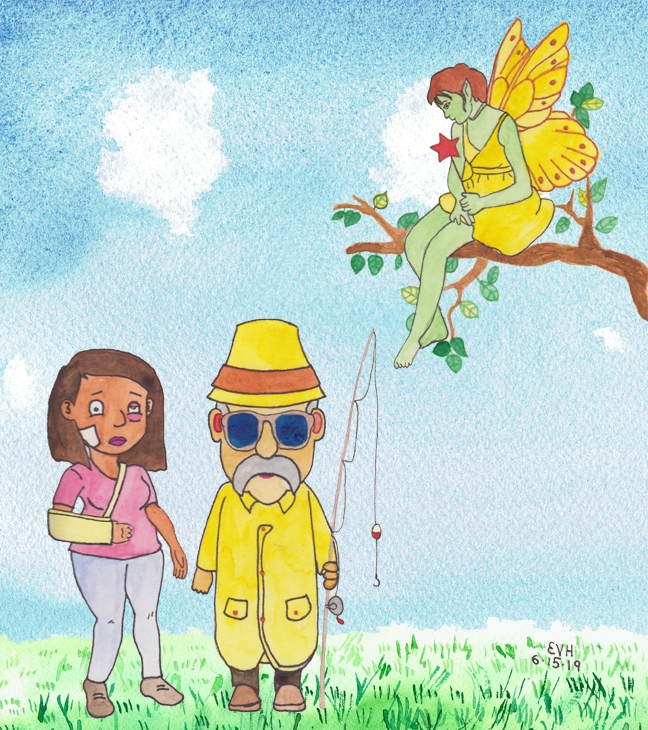
Jataka 139
Ubhatobhaṭṭha Jātaka
The Twofold Failure
as told by Eric Van Horn
originally translated by Robert Chalmers, B.A., of Oriel College, Oxford University
originally edited by Professor Edward Byles Cowell, Cambridge University
We are back to beating up on Devadatta again.
The story in the present tells us how Devadatta has had a “twofold failure.” One “fold” is that he has not had the sense pleasures of the lay life. But he has also failed as a monk.
The Jātaka tale tells us how he tried in a previous life to hide what he thought was a prize fish from his neighbors. But his stinginess comes back to bite not just him but his wife as well. Thus his “twofold failure” was repeated in the past.
“His blinding and her beating.” The Master told this story while he was at the Bamboo Grove. It is about Devadatta.
We hear that the monks met together in the Dharma Hall. They spoke with one another, saying that even as a torch from a spent fire, charred at both ends and covered with manure in the middle does not serve as useful wood either in the forest or a hearth, so Devadatta, by giving up the world to follow the Buddha’s path had only achieved a twofold shortcoming and failure. He had missed the comforts of a lay life yet had fallen short of his vocation as a monk.
Entering the Hall, the Master asked and was told what the monks were discussing. “Yes, monks,” he said, “and so too in days gone by Devadatta came to another such twofold failure.” So saying, he told this story of the past.
Once upon a time when Brahmadatta was reigning in Benares, the Bodhisatta was born as a tree sprite. There was a certain village where a fisherman lived. And one of these fishermen took his tackle and went off with his little boy. He cast his hook into the most likely waters known to his fellow fishermen.
Now the hook got caught on a snag and the fisherman could not pull it up. “What a fine fish!” he thought. “I’d better send my boy home to tell my wife to quarrel with the neighbors so they will all go home, and then I will not have to share my prize.” Accordingly he told the lad to run home and tell his mother what a big fish he had hooked and how she was to distract the neighbors’ attention.
Then, afraid that his line might break, he threw off his coat and ran into the water to secure his prize. But as he groped about for the fish, he struck against the snag and put out both of his eyes. Moreover a robber stole his clothes from the bank. In agony, he pressed his hands to his blinded eyes and clambered out of the river, trembling all over his body and trying to find his clothes.
Meantime his wife, to occupy the neighbors by starting an argument, placed a palm leaf behind one ear. Then she blackened one eye with soot from the saucepan. In this disguise, she came out to call on her neighbors. “Bless me, you’ve gone mad,” said one woman to her. “Not mad at all,” retorted the fisherman’s wife. “You abuse me without cause with your slanderous tongue. Come with me to the landlord and I’ll have you fined eight coins.”
So with angry words they went off to the landlord. But when the matter was investigated, it was the fisherman’s wife who was fined. And she was tied up and beaten to make her pay the fine.
Now when the tree sprite saw how misfortune had come to the wife in the village and the husband in the forest, he stood in the fork of his tree and exclaimed, “Ah fisherman, both in the water and on land your efforts are in vain, and your failure is twofold.” So saying he uttered this stanza:
His blinding and her beating clearly show
A twofold failure and a twofold woe.

Figure: The Twofold Failures and the Tree Sprite
His lesson ended, the Master identified the birth by saying, “Devadatta was the fisherman of those days, and I was the tree sprite.”
